In this article we will be looking at the practicalities of making film set work a film-time job. We will be looking into the different types of film jobs and how to find continuous work. This is no quick scheme but a in depth look at the reality of making film work pay the bills.
My name is Amy Clarke and I spent a handful of years working in the film industry. My job role was Script Supervisor and I have worked within this role on many independent and professional film sets in the UK. You can find more film career advice on my blog here.
Focusing Your Job Role
It is important to know the difference between film crew job roles and general freelance work. Imagine a producer hiring their crew for a feature film. There are many departments to fill, each crew member has a specific focused job role within those departments.
Many new filmmakers make the mistake of applying to film set work with no focused job role. They either apply with the general title ‘Filmmaker’ or with a mix of job roles on their CV such as ‘Director, Writer, Editor’.
When you apply for a position on a film crew make sure to focus your job role. For example you may freelance as a Videographer but for a feature film you might advertise yourself as a Camera Assistant.
Another example might be that you aspire to be a Film Director. You could direct right from the start of your career working your way up from indies until you get trusted on more bigger productions. An alternative route is to work on film sets within any job role to gain on set experience.
If you are applying for a job as a Production Assistant remove the job title ‘Director’ from your CV. You should be applying with the job you are currently looking for and not the one you aspire towards.
Perhaps these past few paragraphs have seemed obvious to you, but a lack of focus is the main reason why people are rejected from film work. A Producer hiring crew wants people who are experienced within a specific job role.
Either focus on a particular department or start out within any entry level position to gain on set experience.
Why You Need A CV
For general freelancing work such as videographer you might never be asked for a CV. Likely you will be hired through world of mouth or from showing a video portfolio.
Until you are well known enough to gain continues recommendations you will be asked to show producers a CV for film set work. When working on feature films even if recommended for a job I was always asked from producers to send over a CV.
A film CV is a simple one page document listing your work credits. The title of your focused job role should be at the top and ideally you work credits should all be within the job title you are applying for. If you don’t have enough credits you can place previous work experience on your CV until you do.
This CV should be sent with a short ‘straight to the point’ cover letter via email when applying for a film crew position.
On most productions the Producer or Line Producer will be doing the hiring however a head of department may hire their own assistants. For example a Director Of Photography might hire their own camera assistants.
I have also created an E-book ‘Find Work In Film’ that goes into more detail on film CV and cover letter design – More Info Here
How To Find Film Set Jobs
The first two sections are important if you wish to work full time on film sets. You will need a specific job and you will need a CV. Your CV should have some experience on it already especially if you are applying for any position other than entry level.
For example, a Videographer may be able to use their previous work to show that they can be trusted for a Camera Assistant position.
Perhaps you already have contacts who can help you find work. This maybe a previous client or someone your studied with. Consider sending your current contacts in film a copy of your CV letting them know that you are looking for jobs ideally within this role.
Online Job sites are your second option, these can sometimes offer great leads. For example a job on a short film could lead to a higher paid job on a feature film.
I found that film work can snowball together, one job very much leads to another especially if you get into the right circle and advertise yourself well.
When you focus your job role you will find that you become easier to hire, for feature film work producers are on the lookout for trusted people within specific focused job roles.
Your third option is online forums and the easiest place to find work right now is from Facebook groups. Use the Facebook search bar to find local filmmaking groups. Your local city will have an active Facebook group full of filmmakers.
There may be jobs advertised on these, opportunities to collaborate or at the very least a chance to ask other filmmakers where they are currently finding work in your location.
Consistent Work
Never underestimate how one low budget indie can lead to work on a major budget film set. Occasionally major budget work is advertised through job sites or film councils (such as the UK’s Creative England), but often the ‘work everyone wants’ will have be gained through a series of lower budget work and networking.
In order to get onto those major sets and find consistent work you need to prove that you can trusted within your job role and fill that CV up will example credits.
After working full-time on film sets for a year within a focused job role I began to get called up weekly with job offers. I never turned down work even if low budget when I wasn’t working. One technique I used was to apply to film jobs in bulk.
Bookmark a handful of film job sites and Facebook groups that advertise work in your area. Freelance work can appear and disappear within a few days so check the sites out regularly and apply to any work within your focused job role.
Another tip is to add film crew members you work with on social media so as they don’t forget you and keep in touch with directors and producers for upcoming projects.
It will take time to forge a career in film. Unlike a typical job, freelance film work will take a few years to get the ball rolling. This means slugging it out in film, perhaps having another job to pay the bills for many years before going full-time.
It is hard to say how long it will take to go full-time as this depends on your job role, your location and previous experience. Just have faith that through persistence you will have enough contacts to make this a full-time job.
How To Work In Film Industry – Alternative Routes
Working on film sets is only one way to work in the film industry. If you don’t wish to focus your job role you can be a jack of all trades freelancing in general and still make a living. If you desire more security there are full-time contracted jobs in film. These jobs can be found at production companies and television studios.
Another alternative is to start your own business. I have several friends who have had success with running their own company either from shooting weddings, corporate or commercial films. Film Lifestyle has plenty of advice for those interested in starting a video production company, check out the detailed guides here.
For more competitive job roles such as Director or Screenwriter you might have to go your own way such as making your own films or writing spec scripts for competition’s.
Keep in mind that it will take time to find the perfect film career for yourself. I have changed my career plans several times. learning about the different work options and understanding what type of work you enjoy is all part of the process.
There is no right or wrong way to have a career in film. Keep experimenting with what type of work is best suited to you and your own film lifestyle.
Matt Crawford
Related posts
12 Comments
Leave a Reply Cancel reply
This site uses Akismet to reduce spam. Learn how your comment data is processed.

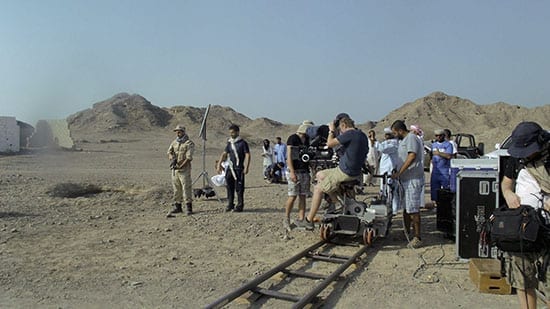
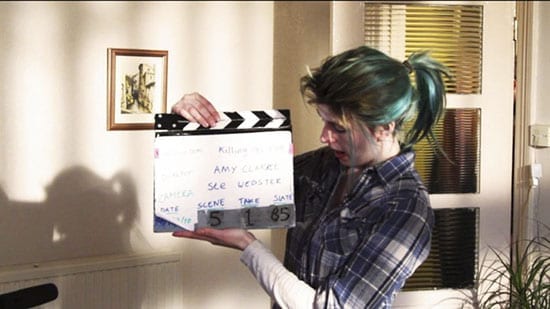

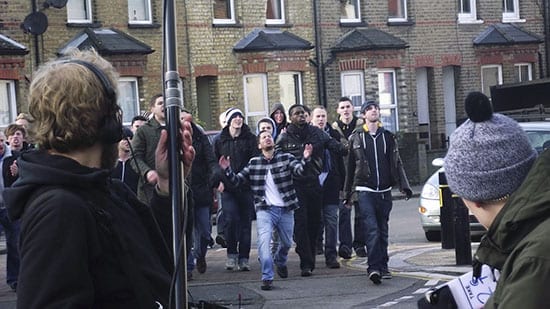
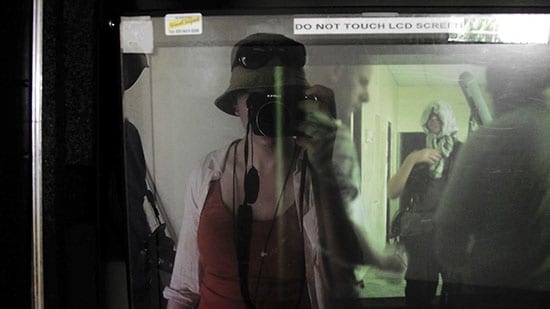
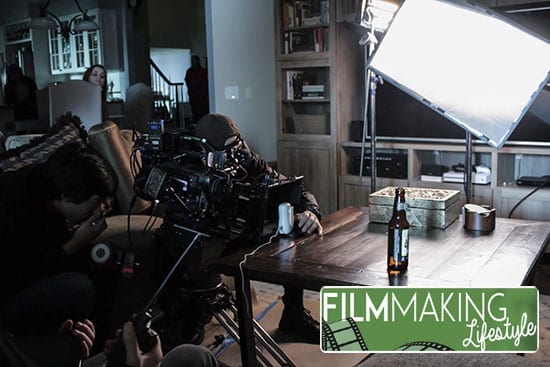

Fantastic info, I’m definitely going to give some of this a try. Wish me luck!
Good luck Max. Glad the post has been helpful!
Thanks for supporting our readers, Amy! 🙂
I’m interested in filmy job
Good luck.
I love this blog post! It’s so inspiring to read about someone who has worked in the film industry full-time and managed to make a living doing what they love. I’m definitely considering working in film someday, but I’m not
Absolutely!
I found this article incredibly informative and helpful. As a recent film school graduate, I’m eager to start my career in the film industry.
Working full-time on film sets is exactly what I need to do to gain the experience I need to succeed. Thank you for sharing your insights and advice!
I found this blog post incredibly informative and helpful.
As a aspiring filmmaker, I’m keen to learn more about working full-time on film sets and how to get started. Thank you for sharing your insights and experience!
I found this article to be incredibly insightful and informative.
As someone who is interested in working in the film industry, it’s helpful to have a detailed guide on how to get started. The tips and advice provided in this post are invaluable, and I can’t wait to start applying them in my own pursuit of a career in film. Thanks for sharing!
Great post! I’m fascinated by the film industry and have always wanted to work full-time on film sets. It’s amazing to hear that you were able to break into the industry without any connections or experience. Your tips and insights are really helpful and I’m eager to start applying them. Can you share some more details about how you got your start in the industry?
Thanks!